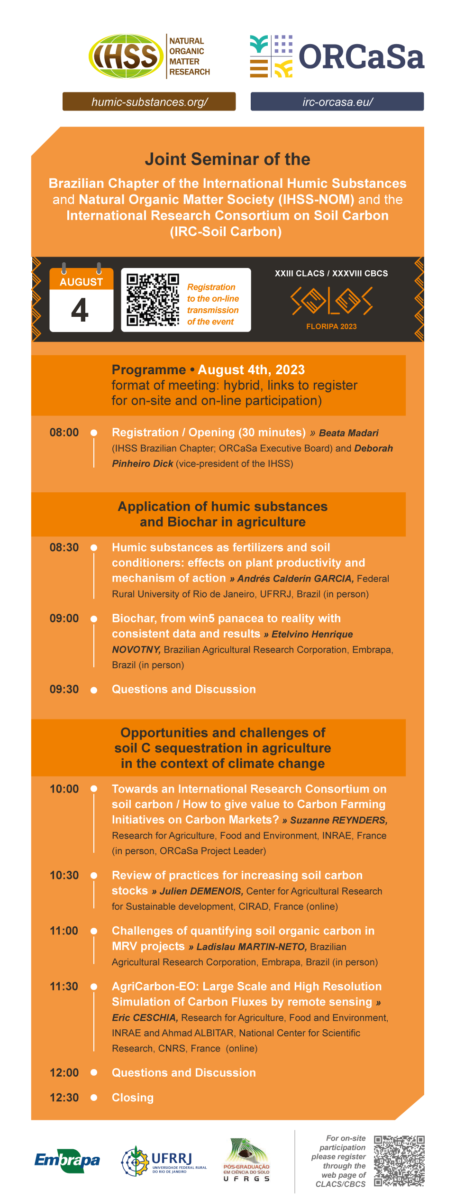ORCaSa South America seminar
4th August 2023, Florianópolis (Brazil)
In parallel to the XXIII Latin American and XXXVIII Brazilian Congress of Soil Science, EMBRAPA, ORCaSa’s regional node for South America, is organising a joint seminar of the Brazilian Chapter of the International Humic Substances and Natural Organic Matter Society (IHSS-NOM) and the International Research Consortium on Soil Carbon.
The seminar aims to provide information, based on scientific knowledge, on the potential for the application of humic substance and biochar derived products in agriculture, and on the role of soil organic carbon (SOC) in mitigating climate change, improving the resilience of agricultural systems and on the enabling and regulatory drivers as well as the challenges and limitations of soil carbon sequestration.
It targets scientists, professionals, farmers and students interested in soil and natural sciences, agriculture, and related stakeholders, such as policymakers, funders and related industry experts.
Questions and topics addressed
Soil organic matter (SOM) is the largest pool of SOC, which is directly linked to the global carbon and nitrogen cycle. Since the implementation of the Paris Agreement, the role of SOC and agriculture has been widely recognised, positioning sustainable agricultural practices and soil carbon sequestration as one of the most effective ways of mitigating climate change and enhancing the resilience and adaptation capacity of agrosystems.
Considerable efforts are being made to identify and develop agricultural practices, processes and technologies that enhance SOC sequestration and its co-benefits, such as soil fertility and soil health. Particularly in tropical and sub-tropical soils, SOC is the main soil component that drives fertility and health, as well as being the basis for the development of natural products to control plant growth, defences and organo-mineral fertiliser components (operationally defined humic substances).
Adequate measurement and monitoring of SOC stock changes are crucial to assess the potential of soil carbon sequestration technologies and to implement and evaluate relevant public policies aimed at enhancing the value of those using low-carbon practices and processes.
Timetable and registration
8 AM until 12:30 PM (UTC -3)
Hybrid event with two options for registration:
Agenda
